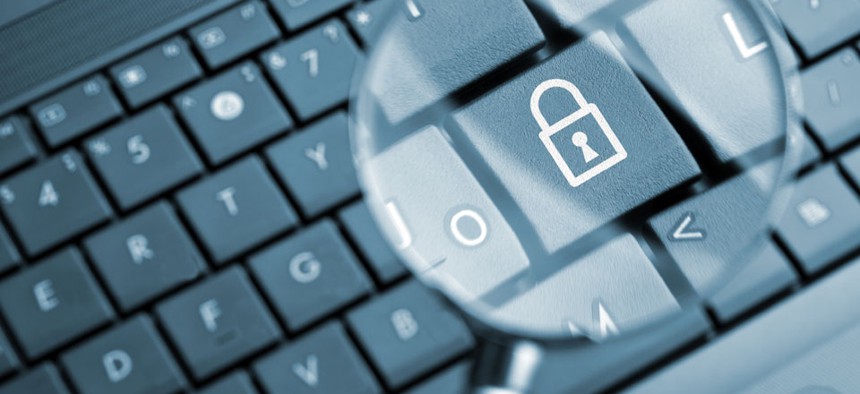Privacy Isn't Dead -- Yet

Nomad_Soul/Shutterstock.com
National security programs may not be the biggest threat to Americans' privacy.
When the head of a large technology company famously declared the end of privacy in 1999, it first drew outrage.
“You have zero privacy anyway,” Sun Microsystems CEO Scott McNealy told a group of reporters more than 15 years ago. “Get over it.”
Then it seemed prophetic.
A few years later, after the attacks of 9/11, security trumped privacy in the minds of many. A few years after that, early adopters started handing over an unprecedented amount of data about their lives to companies such as Google and Facebook -- and then finally nearly everyone else followed.
But that's now changing, experts in law, computer science and government said Tuesday.
“I think it’s wrong and actually quite damaging to promote this idea that privacy is dead,” said Alvaro Bedoya, executive director of the Center on Privacy and Technology at Georgetown Law.
For one thing, a market for privacy fuels innovation, Bedoya told a crowd at Nextgov Prime, this publication’s annual conference on technology in government. For example, he cited reports that Apple’s latest mobile operating system might thwart attempts to track cellphone users’ locations by scrambling MAC — short for Media Access Control — addresses.
“If folks are innovating, I think they can also innovate for privacy,” Bedoya said. “I think that’s a category of innovation that is really underappreciated.”
Did Snowden Leaks Revive Privacy Debate?
Alexander Joel, the civil liberties protection officer at the Office of the Director of National Intelligence, said trust and privacy, especially when it comes to government activity, will likely always go hand-in-hand.
“Do you trust us to follow the rules, and do you trust that we have the right rules in place?” he asked the Nextgov crowd. "We are trying hard to follow the rules."
For a time the public seemed resigned to "zero privacy anyway." When Edward Snowden last year leaked huge amounts of classified information about secret government programs to collect data on large swathes of the American public, he said his biggest fear was no one would care.
But people did care -- even many who opposed Snowden's own tactics for getting out the information.
Congress has taken up legislation to address the programs, and President Barack Obama in January announced he was reining in some of the surveillance programs.
"Privacy is not a thing of the past by any means," Joel said. "I haven’t heard people saying recently that privacy is dead."
National Security Programs May Not Be Biggest Privacy Threat
But national security programs may not be the biggest threat to Americans' privacy.
Lisa Singh, a computer science professor at Georgetown, noted government agencies are actually more restricted in how they use Americans’ data than companies are.
“I don’t think we want to stop companies from learning about their customers,” she said during the panel discussion. “But can we stop them from doing certain things?”
Singh suggested restricting the sale of personal data or requiring companies to use privacy-preserving technology that so far has stayed mainly in academia. “I think pushing those technologies forward is really important,” she said.
"Passing some rules that industry has to follow would be a very good thing," she said. "And we really need to put computer scientists on some of these teams, as well as lawyers and policy makers -- otherwise we won’t set up the right policies."
(Image via Nomad_Soul/Shutterstock.com)






